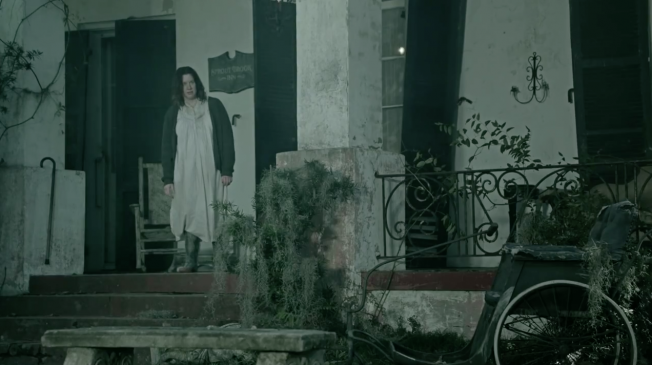
Will a BMW commercial that's come under fire from a prominent mental-health advocates get bounced from the NCAA men's basketball tournament?
The controversy over the 30-second spot, which has been running during games in heavy rotation, should serve as a cautionary tale for marketers (and communicators) everywhere. At first glance, "Cute Cottage," promoting the ConnectedDrive personal assistant feature, seems harmless enough. A couple in a BMW X3 SUV pull up to the secluded, overgrown "Sprout Brook Inn." Noting an unkempt woman in a nightgown and sweater staring at them from the porch, the guy in the passenger seat says, "She looks crazy."
That line—and the couple's decision to seek other lodgings post-haste, using the car's technology (after Siri informs them of "slayings" at the dilapidated hotel)—didn't sit well with Linda Rosenberg, CEO of the National Council for Behavioral Health, which represents more than 2,000 groups nationwide. She fired off a letter to BMW demanding the spot's immediate ouster from the airwaves, and offered a "Mental Health First Aid" course to client executives and staffers at ad agency KBS+P, which created the commercial.
"This went beyond just the word ["crazy"] for us," she told CNBC."It was saying that word, and then behaving as if someone who has a mental illness doesn't deserve your help. … They're just going to walk away."
BMW responded to Rosenberg's complaint with an apology, and a company representative sent this statement to AdFreak: "We are deeply sorry to anyone that was offended by this ad, as it was certainly not our intention. The ad was intended to spoof a horror movie."
Asked if the commercial would in fact act be pulled, the rep said, "The ad is naturally starting to run out of our ad-buy rotation."
"Cute Cottage" does have a thriller-parody vibe—muted colors, moody photography, desolate locale, the couple's overreaction. It's neither hateful nor overtly disrespectful, and certainly not malicious. Ten years ago, or even five, I doubt there'd have been a dustup. I choose to take the brand's apology at face value. If BMW doesn't feel the ad is objectionable enough to pull, so be it—though trotting out the "nearing the end of its rotation" line, even if it's true, rarely helps in these situations.
In a broader sense, we live in an age of social hyper-awareness, and words that carry dual meanings or subtly negative connotations -- like "crazy"—should, at this point, set off warning bells. Still, it's a tough call. Lenny Bernstein, the Washington Post's "To Your Health" blogger, offers a nuanced take:"None of this dawned on me … though I've watched a lot of basketball and a lot of this ad since the tournament began. I understand why it's easy to overlook the offensiveness of these stereotypes, even as we're enjoying a time of great change in attitudes about other previously stigmatized groups."
Personally, I winced when I first heard the guy say "crazy," but I cover marketing every day, so I may be more attuned to advertising's potential pitfalls than a casual viewer, or health writer, would be. I must admit, however, that Rosenberg's second point of contention—the couple's speedy departure without seeking help for the woman on the porch—eluded me completely. After reading her quotes in other media, though, I can see where she's coming from, especially given her heightened awareness of mental health issues.
Cultural tastes and sensitives are constantly evolving. Words and images, always powerful, have the potential to trip up content creators like never before. That's something everyone, especially those of us in the media, should strive to keep in mind.
Perhaps we won't even be calling it March Madness much longer, though Rosenberg isn't focused on that particular phrase.
"We are not concerned about the use of 'March Madness,' although others might feel differently, and indeed the term might fade out over time," she tells AdFreak. "We view 'March Madness' as referring to a 'commotion.' Language is important—but the behavior in the ad is of the most concern."
